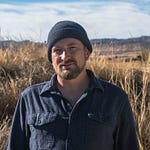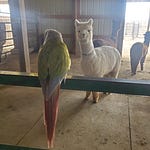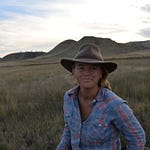Despite placing various clauses of limitation on my internet usage of late, I understand that the term “meta” is having a technocratic moment. And because “meta” is indeed a term—a part of language—and not yet a technologically defined experience (as the chief operating officer would have it), I submit that our interest in “meta” may be deepened most effectively in literary terms.
“Meta”—in English—is, chiefly, a word-forming element, which is to say that it does not stand alone so much as it stands to incorporate. Alsomore, etymonline’s Douglas Harper posits that the *newest* understanding of “meta”—as denoting something “higher or beyond,” a transcendent science—stems from a misinterpretation of classical metaphysics, which is speculation dealing with the first causes of things, re: Aristotle’s Physics and the treatises which came after, hence metaphysics (from Greek ta meta ta physika).
None of this is an indictment of the newly formed Meta Platforms, Inc. (doing business as Meta), just an attempt to clarify the language that underscores the organizational principles behind the technocrats’ latest intentions. If Meta is to come after something, maybe there is hope to be found in the implied awareness of history or, far better, the potential for interrogation of the “first causes” underpinning Meta’s development. If Meta is to transcend something, it would be well, I think, for its native speakers to question 1) the object or condition which it will transcend, and 2) the manner or medium by or through which it intends to do so.
And if Meta is asserting its independence as a word, casting away its conjunctive self in favor of supreme authority over meaning and existence, well... It may have something else coming for it. Or so I’ve read in C. S. Lewis. And Orwell. And Goethe. And company.
*
Perelandra’s reader-in-residence for the month of September was the brilliant Julia Goolsby, a social scientist and holder of careful, generous, often strikingly original insights. One of the great joys of talking to Julia comes alive in the quality of her sympathy as a listener: one feels always heard but never agreed with “automatically” or by default: there is something incredibly intelligent and “on its toes” about her ability to relate. Perhaps this has to do with her experience interviewing scientists, welcoming those with very particular knowledge into wider conversations. Or perhaps it is just who she is as a person.
Conceptions of infrastructure and ecology were present over and under our conversation, which you will hear both gradually and immediately, philosophically and physically, in the recording; out back of the Publick House, the sounds of perpetual additions to Willow Street’s built environment round the corner with amplified ease. In choosing not to edit out this sonic, industrial underlayment—and to record a conversation out back, to begin with—the hope is to simply welcome you to a particular time and place at Wolverine Farm, as opposed to creating a new environment that will tempt or coerce your returns. (The lack of audio editing also spares me flashbacks to more marketable endeavors for which I was once compensated, and kept in an office, and entirely burnt out.)
Those who listen through will notice a brief musical interlude after 35 minutes or so. A portion of our common speculations was cut for the sake of overall duration. (If it’s any consolation, the interlude is an original recording, just like the discussion.) Here is a phrasal, warpspeed summary of the missing dialogue.
I challenge the sense in which diversity is what to call the stuff that proliferates on the internet; Julia questions distinctions between what is happening on the internet and off of it, or in devices and without them; I ask Julia what the difference is between social and natural sciences, she says it’s almost more for the natural scientist to say and for the social sciences to be everything else (apophatic); then we go to poetry, how to read it, what this means in terms of movement versus non-movement, nouns and verbs and their confusions, and what logic has to do with poiesis, if anything; then to ecology, etymologically speaking– I suggest eco (home) logos (knowing), and Julia extends this from language to environs, non-reductive to words.
—Joe
“It’s hard to be the unchangeable thing in a changing world.”
Books mentioned:
Beowulf: A New Verse Translation (1999) trans. by Seamus Heaney
The Collected Poems (1957) by Dylan Thomas
Truth Barriers (1980) by Tomas Tranströmer
The Princess Bride (1973) by William Goldman
A Coast of Trees (1981) by A. R. Ammons
The Collected Poetry of Robinson Jeffers (2000)
Death of a Naturalist (1966) by Seamus Heaney













Share this post